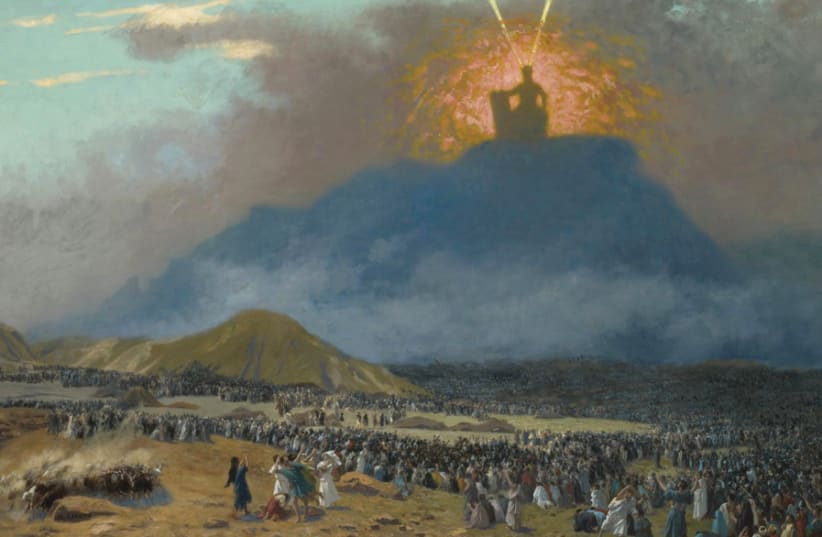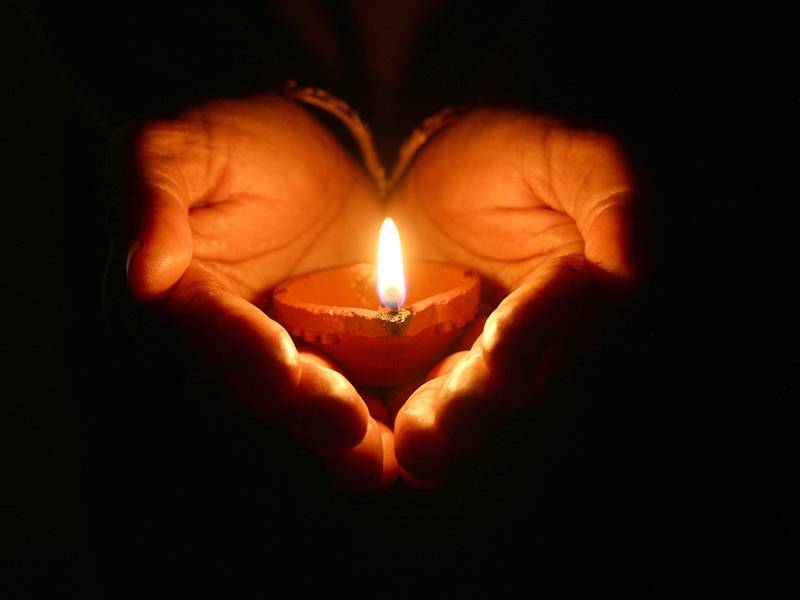Bonjour / Hello [nickname_else_first_name],
Table of contents
1) Perashat Hashavoua - Rabbi Eli Mansour
2) Halakhat Hashavoua (Halakhot related to day to day life) By Hazzan David Azerad -
The Mitzvah of Keriat Shema (The Recital of Shema) -Peninei Halacha
3) Holy Jokes!
4) For KIDS

This Week's Parasha Insight with Rabbi Eli Mansour
Parashat Yitro: Peace in This World and the Next
We read in Parashat Yitro of Yitro’s suggestion that Moshe Rabbenu appoint a network of judges to work alongside him judging the people, rather than judge all the cases by himself. Yitro assures Moshe that if he follows his suggestion, "Kol Ha’am Ha’zeh Al Mekomo Yabo Be’shalom" – "This entire nation will come to its place in peace" (18:23). By establishing an efficient judicial system whereby everybody is guaranteed to have his disputes resolved promptly and fairly, Moshe can help maintain peace and goodwill among Beneh Yisrael. When people know that all disputes are being handled properly, and that everyone is giving and receiving precisely what they are supposed to, there is no resentment and people get along with one another in peace and harmony.
While on the surface Yitro’s point seems clear, the Hafetz Haim (Rav Yisrael Meir Kagan of Radin, 1839-1933) notes a subtle point in Yitro’s choice of words that should draw our attention. Our Sages have taught that there is a distinction between wishing somebody that he should go "Le’shalom" and go "Be’shalom." The word "Le’shalom" is the term that should normally be used when bidding somebody farewell, whereas "Be’shalom" is reserved for the deceased. We should use "Be’shalom" only when bidding farewell to a departed person and wishing him or her a pleasant and peaceful afterlife. Why, then, would Yitro use the word "Be’shalom" in this context? He obviously wasn’t anticipating that everyone among Beneh Yisrael would die; the point he was making was that an efficient judicial system would help ensure a peaceful existence here in this world. So why did he use the term associated with the deceased?
The Hafetz Haim explained that Yitro here actually refers to peace in both worlds – this world and the next. If a person leaves this world holding onto money or property that does not lawfully belong to him, he does not experience rest in the afterlife. He will have to return to this world in a different incarnation in order to return the assets. A proper judicial system thus ensures "Be’shalom" – that people can enjoy peace in the afterlife and enjoy the delights of the next world. If disputes are not properly handled in this world, then the soul will have to return at some later point to handle them.
The Hafetz Haim’s powerful words should serve as an added deterrent against dishonesty in our financial dealings. People might be tempted to think, "Well, it’s only a few dollars," or "Look, this is how things are done," and justify dishonesty on this basis. The Hafetz Haim warns us that even "if it’s just a few dollars," and even if "this is how things are done," these factors will not help one in the next world. For those few dollars, he will be denied rest in the next world.
Simply put, we need to remind ourselves that it’s never worth it to act dishonestly. No matter how much money we stand to gain or save through even a so-called "minor" ethical breach, we will end up losing, either in this world or the next. And the loss will always far, far exceed anything we could possibly gain.

Halachot this week are selected and Translated by Hazzan David Azerad
The Mitzvah of Keriat Shema (The Recital of Shema) -Peninei Halacha
It is a positive biblical commandment to recite Shema at night and in the morning, as it is written (Deuteronomy 6:7), “And you shall say them… when you lie down and when you get up.” “When you lie down” denotes nighttime, and “when you get up” refers to morning.
We read three paragraphs, the first: “Shema Yisrael” (“Hear O Israel”) (Deuteronomy 6:4-9), with which we accept the yoke of Heaven, and which discusses the unity and love of Hashem. The second is “V’hayah Im Shamo’a” (“And if you follow”) (Deuteronomy 11:13-21), which includes the acceptance of the yoke of the mitzvot. The third is “Vayomer” (“And He said”) (Numbers 15:37-41), including a command to remember the mitzvot through the commandment of tzitzit, and mention of the Exodus from Egypt.
The Chachamim arranged the Shema paragraph to precede V’hayah Im Shamo’a so that a person will first accept the yoke of Heaven, and only afterwards accept the yoke of the mitzvot. They also placed V’hayah Im Shamo’a which involves a general mandate to keep all the mitzvot, including those performed during both day and night, before the Vayomer paragraph, which discusses the mitzvah of tzitzit, performed only during the day (Berachot 13a).
In the opinion of some Rishonim, the biblical commandment is to recite the verse “Shema Yisrael.” According to them, this is the meaning of (Deuteronomy 6:6-7), “These words I am commanding you today must be in your heart…when you lie down and when you get up.” However, the Chachamim instituted reciting the entire three paragraphs.
It can be explained, that the essence of the mitzvah of Keriat Shema is that a person accepts upon himself the yoke of Heaven, and for that reason, even one who only recites the first verse fulfills the biblical commandment. Yet, the more a person enhances his acceptance of the yoke of Heaven, the more completely he fulfills the biblical commandment. Therefore, the Chachamim instituted the recital of all three paragraphs, for within them are the fundamentals of faith, the acceptance of the yoke of the mitzvot, and the remembrance of all the mitzvot through the mitzvah of tzitzit. Hence, in actuality, we fulfill the biblical mitzvah by reciting all three paragraphs.
Bevirkat Shabbat Shalom Umevorach
David Azerad
3) HOLY JoKeS!!
Selection of funny snippets, loosely related to this weeks parashah or current events, to brighten your day



4) FOR KIDS
Click on the image to open the youtube video








 MABROOK!!!
MABROOK!!!






